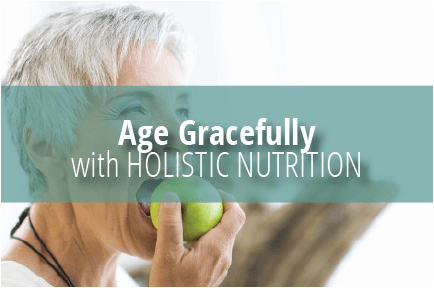As we age, our nutritional needs change. The key to aging gracefully lies in maintaining a healthy and balanced diet. Proper nutrition plays a crucial role in keeping our bodies functioning at their best, boosting immunity, and fighting off various age-related diseases and conditions.
The Importance of a Balanced Diet
Aging gracefully begins with maintaining a well-balanced diet that provides the essential nutrients required for optimal health. A balanced diet includes a variety of fruits, vegetables, whole grains, lean proteins, and healthy fats.
Fruits and vegetables are packed with antioxidants, vitamins, and minerals that help protect the body against oxidative stress and inflammation, which are both associated with aging. Include a range of colorful fruits and vegetables to ensure you are getting a diverse array of nutrients.
Whole grains, such as brown rice, whole wheat bread, and oats, are rich in fiber, which aids digestion and helps regulate blood sugar levels. They also provide essential B vitamins and minerals, contributing to overall health.
Lean proteins, such as poultry, fish, tofu, and legumes, are essential for maintaining muscle mass and providing necessary amino acids. Protein also plays a crucial role in tissue repair and immune system function.
Healthy fats, like those found in avocados, nuts, and olive oil, are important for brain health, reducing inflammation, and maintaining healthy skin. Include these fats in moderation as part of your diet.
The Role of Key Nutrients in Aging Gracefully
Several nutrients are particularly important for maintaining vitality and health as we age. These include:
1. Calcium and Vitamin D
Calcium and vitamin D are essential for bone health. As we age, our bones tend to become more fragile, increasing the risk of fractures. Consuming adequate amounts of calcium-rich foods, such as dairy products, leafy greens, and fortified foods, along with adequate sun exposure or vitamin D supplements, helps maintain bone density.
2. Omega-3 Fatty Acids
Omega-3 fatty acids, found in fatty fish like salmon and sardines, walnuts, and flaxseeds, are vital for brain health and reducing the risk of age-related cognitive decline. Incorporate these foods into your diet regularly to support brain function and reduce inflammation.
3. Antioxidants
Antioxidants, such as vitamins A, C, and E, along with minerals like selenium and zinc, help protect the body against oxidative stress and damage caused by free radicals. These antioxidants can be found in a variety of fruits, vegetables, nuts, and seeds. Including a rainbow of colors in your diet ensures a wide range of antioxidants.
4. Fiber
Fiber is essential for maintaining a healthy digestive system and preventing constipation, a common concern in older adults. Including plenty of fiber-rich foods, like whole grains, fruits, vegetables, and legumes, helps keep the digestive system regular and supports gut health.
The Importance of Hydration
Staying hydrated is essential for overall health, especially as we age. Dehydration can lead to various health complications such as urinary tract infections, constipation, and even cognitive decline. Make sure to drink enough fluids throughout the day, and include hydrating foods such as watermelon, cucumbers, and soups in your diet.
Managing Portion Sizes
As we age, our metabolism tends to slow down, leading to weight gain and potential health issues. Managing portion sizes is important to prevent overeating and maintain a healthy weight. It’s essential to listen to your body’s hunger and fullness cues, and avoid excessive calorie intake.
Supplementing When Necessary
While a well-balanced diet should provide most of the essential nutrients, sometimes supplementation may be necessary, especially for nutrients that are harder to obtain through diet alone. Consult with a healthcare professional to determine if you need any supplements and the appropriate dosage.
Conclusion
Proper nutrition is crucial for aging gracefully. By consuming a well-balanced diet, rich in fruits, vegetables, whole grains, lean proteins, and healthy fats, while incorporating key nutrients and staying hydrated, you can support overall health, maintain vitality, and mitigate age-related health risks. If you have any concerns or specific dietary needs, always consult with a healthcare professional for personalized advice.




